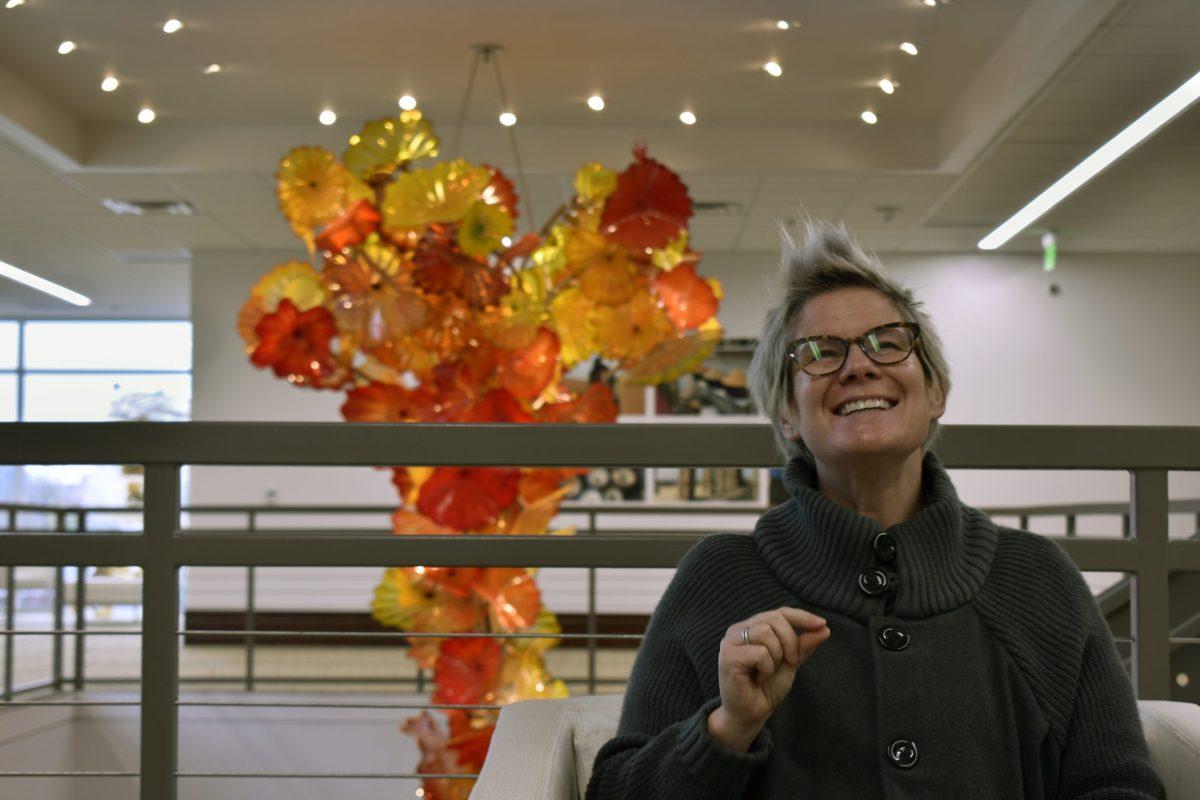Reflection on implementing inclusivity in the classroom
On Oct. 30, around 40 faculty and students, including myself, shuffled into the faculty dining hall to grab lunch before gathering in the Holcombe room below Burwell. This event, which was sponsored by the Office of Diversity and Inclusion, was centered around inclusivity. Amidst munching and chatter, students were asked to ponder a series of questions: What makes you feel included in the classroom? What makes you not feel included in the classroom? Has a friend of yours or somebody in your group faced discrimination in the classroom at Wofford? If so, what happened? What comments or suggestions do you have for your professors at Wofford?
Once most people had finished their meals, the conversation took off with student leaders from groups like Wofford Women of Color and LGBTerriers sharing their suggestions. For instance, one student suggested incorporating diversity into the curriculum, whether through literature or real-world problems, to present it as a normal conversation, rather than an addition to established lessons. Another advised that professors reprimand offensive comments in the classroom in order to foster an inclusive environment for all students. Nneka Mogbo ’20, President of Wofford Women of Color, clarified that in class conversations, rather than employing the microphone effect by forcing students to speak to the experiences of the entire group with which they identify, professors should “address the fact that that topic is uncomfortable and why it is uncomfortable.” By unpacking a topic, students will understand how to address a controversial subject and be able to honestly converse, so that the conversation is not based solely on the opinions of one student.
Professors also engaged in discussion, offering themselves as valuable resources and encouraging students to file reports in cases where other professors make them feel targeted or created a hostile classroom environment. Their suggestions varied from including information regarding the Bias Incident Report in their syllabi to opening conversations, rather than shying away from controversial topics.
Overall, the discussion was productive but, as Mogbo noted, the aftermath of these conversations is what matters: “With sharing student experiences, it is also important to create resolve and leap into action.” These conversations are important, but when the vast majority of professors and students are the same ones who always attend, nothing changes outside of this closed environment.
Despite appreciating the opportunity to voice the experiences and opinions of those in Wofford Women of Color, Mogbo also suggested inviting professors with differing opinions so that they “can’t claim ignorance to the way minority students feel in the classroom. You can’t say that nobody told you…at this point, it would be ‘I didn’t listen’.” She further explained this with frustration at professors who don’t attend events discussing diversity and inclusion and refuse to acknowledge the experiences of their students. “You can’t throw out the phrase ‘I’m not politically correct’ and assume that that covers everything that you do…essentially, rhetoric is important,” Mogbo said.
By expanding these events to reach further into the Wofford community, the Office of Diversity can amplify student voices. As Mogbo described, it can be emotionally exhausting to continually have to describe bad experiences and aspects of the Wofford community and society in general. She suggested opening the conversations to conflicting opinions and imploring professors to actually hear their students. Either way, these types of events give students the power to share their experiences and give professors the power to make changes.
Caption: Dr. Kim Rostan, professor of English, is a key advocate for making the classroom inclusive for all





























